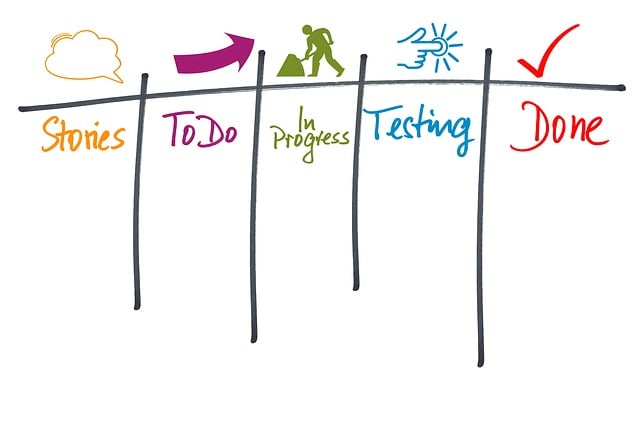Integrating Marketing Automation for Campaigns with CRM revolutionizes business strategies by offering a holistic view of customer interactions. Advanced analytics enable targeted marketing and personalized communication like email marketing, streamlining processes and boosting engagement. This partnership allows businesses to deliver consistent, relevant messages on a large scale, driving sales growth and strengthening customer relationships through efficient lead nurturing and improved conversion rates.
In today’s digital landscape, successful marketing hinges on integrating Customer Relationship Management (CRM) with marketing automation. This powerful synergy enhances campaign effectiveness significantly. By understanding how CRM and automation complement each other, businesses can optimize lead nurturing processes, streamline workflows, and improve customer engagement. This article explores these key aspects, offering insights into leveraging marketing automation for campaigns to drive better results and foster stronger client relationships.
- Understanding CRM and Automation Synergy
- Enhancing Lead Nurturing with Automation
- Streamlining Marketing Workflows: A Case for Integration
- Measuring Success: Metrics for Automated Campaigns
Understanding CRM and Automation Synergy

In today’s digital era, businesses are increasingly recognizing the power of integrating Customer Relationship Management (CRM) with Marketing Automation for campaigns. This synergy offers a comprehensive view of customer interactions and behaviors, enabling more targeted and effective marketing strategies. By combining CRM’s ability to track and manage customer data with automation tools’ capability to streamline processes, companies can enhance their marketing analytics significantly. This integration allows for personalized communication through email marketing and improves overall reputation management by providing insights into customer preferences and trends.
The collaboration between CRM and automation also facilitates the creation of dynamic content tailored to individual customer segments, thereby boosting engagement and conversion rates. Moreover, automated workflows can efficiently manage repetitive tasks, freeing up time for marketers to focus on strategic planning and creative endeavors. In terms of campaign strength, this integration empowers businesses to deliver consistent, relevant messages at scale, ultimately driving sales growth and fostering stronger customer relationships.
Enhancing Lead Nurturing with Automation

In today’s digital era, marketing automation for campaigns has become a game-changer for businesses looking to elevate their lead nurturing process. By integrating Customer Relationship Management (CRM) with automation tools, companies can streamline their efforts and create more personalized experiences for potential customers. This strategy allows marketers to move beyond generic messaging by delivering targeted content based on individual interests and behaviors. For instance, automated workflows can trigger relevant emails, social media posts, or even WhatsApp marketing messages, ensuring that leads receive timely and tailored interactions.
Furthermore, automation enables efficient lead scoring and qualification. As leads interact with various marketing materials, such as filling out landing pages, the system can automatically assess their engagement and interest level. This real-time data helps sales teams prioritize prospects, focusing on those most likely to convert. Text message marketing, for example, has proven to be an effective way to capture immediate attention, driving more conversions when combined with strategic automation and a well-designed landing page that caters to the audience’s initial interest.
Streamlining Marketing Workflows: A Case for Integration

In today’s competitive market, efficient Marketing Automation for campaigns is no longer a luxury but a necessity. Integrating Customer Relationship Management (CRM) with automation tools streamlines marketing workflows, enabling businesses to optimize their strategies and achieve remarkable results. By combining powerful CRM systems that house customer data with automation technologies designed for task execution, companies can automate repetitive tasks such as email marketing, lead nurturing, and social media marketing automation.
This integration allows marketers to focus on high-value activities like strategy development and creative content creation while the automated processes handle the routine, ensuring consistent engagement with potential customers. Moreover, a well-integrated system provides valuable insights into customer behavior and preferences, facilitating personalized interactions and improving conversion rates significantly. For instance, an effective automation sequence can drive prospects through a targeted landing page, offering tailored content based on their previous interactions, thereby enhancing overall campaign effectiveness.
Measuring Success: Metrics for Automated Campaigns

Measuring success is a critical aspect of any marketing campaign, and when integrating CRM with automation, it becomes even more vital to track key performance indicators (KPIs). By defining clear metrics, marketers can assess the effectiveness of automated campaigns and make data-driven decisions. One essential metric is conversion rate, which indicates the percentage of leads that successfully complete a desired action, such as making a purchase or signing up for a newsletter. This provides valuable insight into the quality of prospects generated through automation.
Additionally, tracking click-through rates (CTRs) on landing pages is crucial. Since automated campaigns often drive traffic to these pages, monitoring CTRs helps gauge user engagement and interest in the offered content. A high CTR suggests that the marketing automation strategy is effective at capturing the target audience’s attention. Other relevant metrics include open rates for email campaigns, average session duration, and bounce rates, all of which contribute to a holistic understanding of campaign performance and customer interactions with automated marketing efforts.
Integrating Customer Relationship Management (CRM) with marketing automation is a powerful strategy that enhances campaign effectiveness. By combining these technologies, businesses can streamline lead nurturing processes, improve customer engagement, and achieve better outcomes. This approach allows for more personalized interactions, efficient workflow management, and data-driven decision-making. With the right CRM and automation tools, marketers can create dynamic campaigns that deliver measurable results, ultimately driving business growth and success in today’s competitive landscape.
